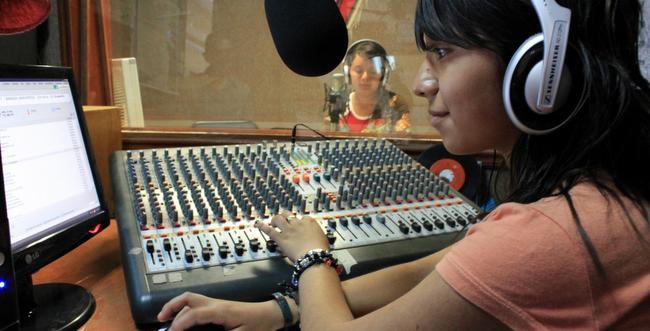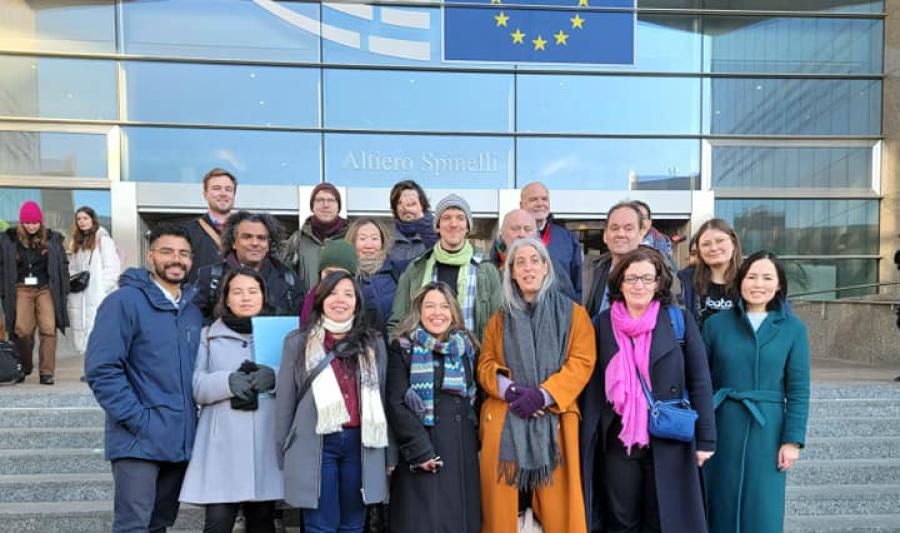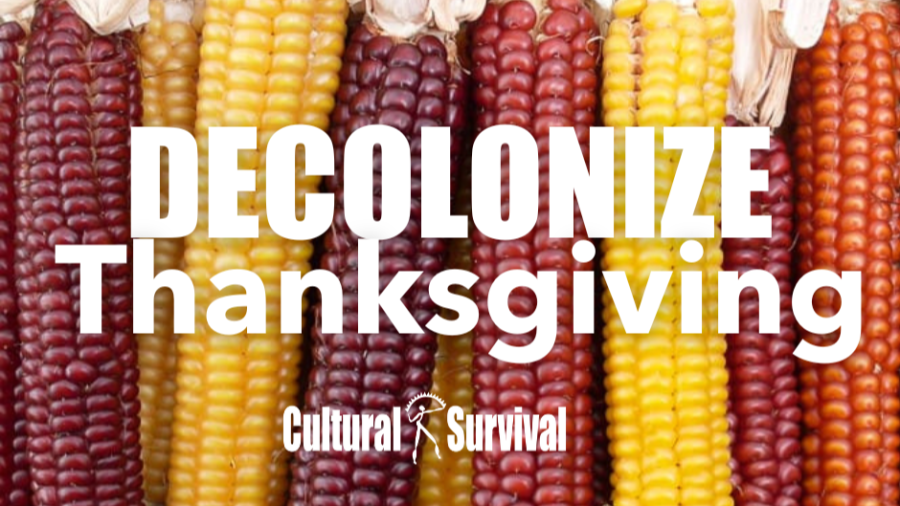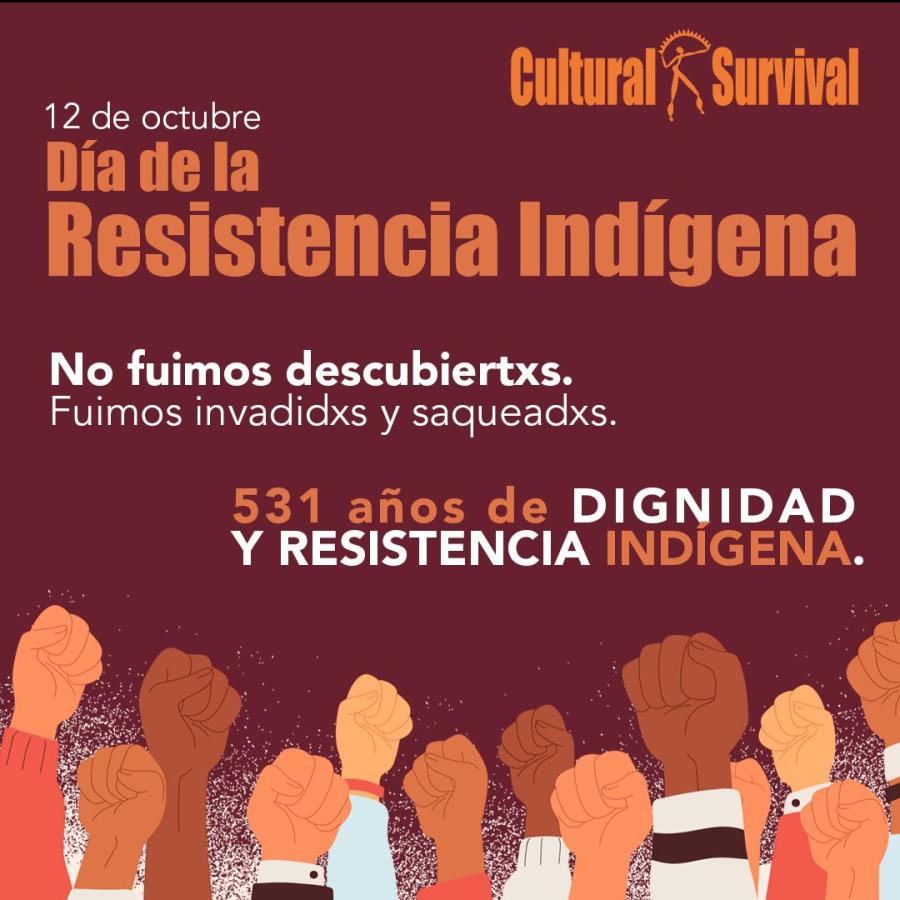
From January 16-18, 2016 Cultural Survival, Fundación Comunicándonos, AMARC (Central American Sub region), Voces Indígenas Panamá, the General Guna Congress, Asociación Sobrevivencia Cultural and Indigenous community radio representatives will bring together representatives from Indigenous community radios in every country in Central America for the First Central American Indigenous Community Radio Conference: Indigenous Voices Unifying the Region. This conference will diagnose and reflect on the current lived reality for community radios in the region. The conference will head off the development of a network for participating radios, facilitating the exchange and sharing of resources, technologies, best practices and lobbying strategies, permitting the strengthening of political support and continuing the Indigenous movement for the defense of identity, culture, human rights and Indigenous rights.
There has been long-time interest on the part of Central American Indigenous community radio advocates in holding a regional Indigenous community radio conference. Given the large Indigenous population in the region and the growing number and quality of Indigenous community radios working to serve their communities through their programming, it will be invaluable to hold an event that would create a space for sharing experiences, political strategies, resources, and ultimately establish a lasting network that will carry the exchange beyond the event and support the work being done by Indigenous Peoples and other social organizations.
Two Continental Summits on Indigenous Communication have been held, to which Indigenous participants were invited from all over the Americas. At the most recent of these, held in 2013, the Outcome Document called for an Indigenous communications network. Yet no groups have taken up this call on a regional level. Thus, this event responds to the urgent need for an event that spans the Central American region and focuses on social, cultural, legal, and political issues specific to this region. The event will include the representation of a broad range of opinions and experiences from community radios in the region, resulting in a lasting and effective network that serves the needs of Central American Indigenous community radios.
Many Indigenous community radios throughout Central America already function as members of networks, which has benefited their communities’ struggles. For example, in Guatemala, the community radios have been working for over 16 years to pass a law that would give them a legal means of accessing radio frequencies, despite the fact that Guatemala’s constitution and peace accords require it to provide this. As they await the passing of a law to protect them, Guatemala’s Indigenous community radios operate under the threat of raids, attacks, and closures by the police.
There is very limited community radio legislation in the rest of the Central American countries either. Throughout the region, both television and radio frequencies are monopolized by the commercial media, and the States in the region see communication not as a human right but as a commercial good, despite resolutions by UNESCO and the United Nations and Organization of American States Special Rapporteurs on Freedom of Expression.
The time has come to see if Panama’s government will present a different attitude than the rest of Central America. In the last few months, the Panamanian government has promised to facilitate legal status for Indigenous community radios in Panama. Holding this First Indigenous Community Radio Conference in Panama will be an important demonstration of regional support for the move to bring this legislation into being. The presence of Indigenous community radio representatives from all over the region will be a powerful statement to the Panamanian government, pressing them to continue to support community radio in Panama. Their step forward toward fulfillment of this human right could, through the work of the network we envision, provide an important precedent to governments in the region that are lagging behind.
It is important to point out that the legal status of Indigenous community radios is not currently different from that of non-Indigenous community radios. The current legal frameworks that administer the radioelectric spectrum in the Central American countries do not recognize three different communication sectors: public, commercial, and community. Thus, it is necessary to call States’ attention and demand their compliance with international agreements and national laws that specifically guarantee Indigenous Peoples direct access to radio and television frequencies as a tool in protecting and revitalizing their identities. Indigenous Peoples have a unique need for their community media, since it is through the media that they can communicate about issues that affect them, organize themselves, and strengthen their languages and cultures. It is for this reason that legalizing community radio is so important: Indigenous Peoples require a space in which they can communicate freely, exchange ideas, and work to implement their rights.
The First Central American Indigenous Community Radio Conference will take place January 16-19, 2016 in the Comarca Guna Yala in Panama with the participation of over 40 Indigenous leaders from the Kuna territory, Indigenous women and active members of community radios from throughout Central America. Half of the participants are women who demonstrate interest and commitment to the democratization of media for Indigenous Peoples and women, two sectors who have historically not been given sufficient voice in public media.
“The objective of the First Central American Indigenous Community Radio Conference is to establish the foundation for a Central American regional Indigenous community radio network for sharing resources, technologies, good practices, political strategies, and building international political support, all with the goal of supporting Indigenous Peoples’ struggle in defense of their identity, land, and human rights,” said Mark Camp, Cultural Survival Deputy Executive Director.
The Agenda is divided into six principal areas:
Identify the legal, political, organizational, and economic situation of Indigenous community radios in the region;
Exchange experiences, tools, and radio content;
Clarify the meaning and role of Indigenous community radio as it relates to our communities’ struggles for our rights in Central America and the whole Latin American continent;
Exchange experiences regarding the management of community radios in the region;
Develop an action plan for the Central American Indigenous Community Radio Network; and
Hold a press conference in Panama City to share the results of this First Radio Conference with other media sources and civil society organizations.
The participants will develop a follow-up plan and draft an Outcome Document to record shared principles, conclusions, and follow-up.
Partners: Cultural Survival, Asociacion Sobrevivencia Cultural, AMARC Central America and Voces Indigenas Panama
Each of the project partners have an established history as leaders in the Indigenous Community Radio movement, especially in the establishment, development, and defense of these radios.
Cultural Survival is a non-profit organization whose mission is to promote Indigenous Peoples’ rights. One of its central programs supports its Guatemalan sister organization, Asociacion Sobrevivencia Cultural, through its Community Media Program. In Guatemala, Cultural Survival and Asociacion Sobrevivencia Cultural strengthen Indigenous community radios with technical workshops and training and have spent the last eight years accompanying the Community Radio Movement’s struggle for the legalization of Indigenous community radio.
AMARC Central America is the Central America regional branch of the World Association of Community Broadcasters. It is a key organization in the international community radio movement worldwide. AMARC’s mission is to promote the democratization of communication, especially radio, to better allow freedom of expression and contribute to the equitable and sustainable development of Indigenous Peoples. It works to democratize communication in order to democratize society.
In Panama, community radio is a new development; commercial radios are the media that dominate the airwaves. Yet the situation is changing, as three community radios have recently been established in the Indigenous territories of Panama. By the end of the year, it is expected that a total of seven Indigenous community radios will be on the air as members of AMARC Panama.
For more information contact:
Angelica Rao: angelica@cs.org, +1-647-624-3084
Teresita Mendoza: teresita@culturalsurvival.org, 505-87734907 505-85285412 (en espanol)



